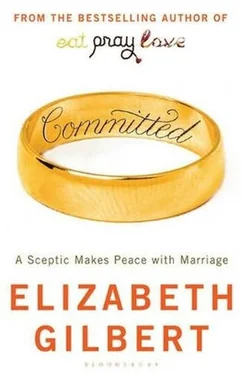I had no problem with any of this, by the way. I had long ago learned that when you are the giant, alien visitor to a remote and foreign culture it is sort of your job to become an object of ridicule. It’s the least you can do, really, as a polite guest. Soon more women-neighbors and relations-poured into the house. They also showed me their weavings, stuck their hats on my head, crammed my arms full of their babies, pointed at me, and laughed.
As Mai explained, her whole family-almost a dozen of them in total-lived in this one-room home. Everyone slept on the floor together. The kitchen was on one side and the wood stove for winter was on the other side. Rice and corn were stored in a loft above the kitchen, while pigs, chickens, and water buffalo were kept close by at all times. There was only one private space in the whole house and it wasn’t much bigger than a broom closet. This, as I learned later in my reading, was where the newest bride and groom in any family were allowed to sleep alone together for the first few months of their marriage in order to get their sexual explorations out of the way in private. After that initial experience of privacy, though, the young couple joins the rest of the family again, sleeping with everyone else on the floor for the rest of their lives.
“Did I tell you that my father is dead?” Mai asked as she was showing me around.
“I’m sorry to hear that,” I said. “When did it happen?”
“Four years ago.”
“How did he die, Mai?”
“He died,” she said coolly, and that settled it. Her father had died of death. The way people used to die, I suppose, before we knew very much about why or how. “When he died, we ate the water buffalo at his funeral.” At this memory, her face flashed a complicated array of emotions: sadness at the loss of her father, pleasure at the remembrance of how good the water buffalo had tasted.
“Is your mother lonely?”
Mai shrugged.
It was hard to imagine loneliness here. Just as it was impossible to imagine where in this crowded domestic arrangement you might find the happier twin sister of loneliness: privacy. Mai and her mother lived in constant closeness with so many people. I was struck-not for the first time in my years of travel-by how isolating contemporary American society can seem by comparison. Where I come from, we have shriveled down the notion of what constitutes “a family unit” to such a tiny scale that it would probably be unrecognizable as a family to anybody in one of these big, loose, enveloping Hmong clans. You almost need an electron microscope to study the modern Western family these days. What you’ve got are two, possibly three, or maybe sometimes four people rattling around together in a giant space, each person with her own private physical and psychological domain, each person spending large amounts of the day completely separated from the others.
I don’t want to suggest here that everything about the shrunken modern family unit is necessarily bad. Certainly women’s lives and women’s health improve whenever they reduce the number of babies they have, which is a resounding strike against the lure of bustling clan culture. Also, sociologists have long known that incidences of incest and child molestation increase whenever so many relatives of different ages live together in such close proximity. In a crowd so big, it can become difficult to keep track of or defend individuals-not to mention individuality.
But surely something has been lost, as well, in our modern and intensely private, closed-off homes. Watching the Hmong women interact with each other, I got to wondering whether the evolution of the ever smaller and ever more nuclear Western family has put a particular strain on modern marriages. In Hmong society, for instance, men and women don’t spend all that much time together. Yes, you have a spouse. Yes, you have sex with that spouse. Yes, your fortunes are tied together. Yes, there might very well be love. But aside from that, men’s and women’s lives are quite firmly separated into the divided realms of their gender-specific tasks. Men work and socialize with other men; women work and socialize with other women. Case in point: there was not a single man to be found anywhere that day around Mai’s house. Whatever the men were off doing (farming, drinking, talking, gambling) they were doing it somewhere else, alone together, separated from the universe of the women.
If you are a Hmong woman, then, you don’t necessarily expect your husband to be your best friend, your most intimate confidant, your emotional advisor, your intellectual equal, your comfort in times of sorrow. Hmong women, instead, get a lot of that emotional nourishment and support from other women-from sisters, aunties, mothers, grandmothers. A Hmong woman has many voices in her life, many opinions and emotional buttresses surrounding her at all times. Kinship is to be found within arm’s reach in any direction, and many female hands make light work, or at least lighter work, of the serious burdens of living.
At last, all the greetings having been exchanged and all the babies having been dandled and all the laughter having died down into politeness, we all sat. With Mai as our translator, I began by asking the grandmother if she would please tell me about Hmong wedding ceremonies.
It’s all quite simple, the grandmother explained patiently. Before a traditional Hmong wedding, it is required that the groom’s family come and visit the bride’s house, so the families work out a deal, a date, a plan. A chicken is always killed at this time in order to make the families’ ghosts happy. Once the wedding date arrives, a good many pigs are killed. A feast is prepared and relatives come from every village to celebrate. Both the families chip in to cover expenses. There is a procession to the wedding table, and a relative of the groom will always carry an umbrella.
At this point, I interrupted to ask what the umbrella signified, but the question brought some confusion. Confusion, perhaps, over what the word “signifies” signifies. The umbrella is the umbrella, I was told, and it is carried because umbrellas are always carried at weddings. That is why, and that is that, and so it has always been.
Umbrella-related questions thereby resolved, the grandmother went on to explain the traditional Hmong marital custom of kidnapping. This is an ancient custom, she said, though it is much less in practice these days than it was in the past. Still, it does exist. Brides-who are sometimes consulted beforehand about their kidnapping and sometimes not-are abducted by their potential grooms, who carry them by pony to their own families’ homes. This is all strictly organized and is permitted only on certain nights of the year, at celebrations after certain market days. (You can’t just kidnap a bride any old time you want. There are rules.) The kidnapped girl is given three days to live in the home of her captor, with his family, in order to decide whether or not she would like to marry this fellow. Most of the time, the grandmother reported, the marriage proceeds with the girl’s consent. On the rare occasion that the kidnapped potential bride doesn’t embrace her captor, she is allowed to return home to her own family at the end of the three days, and the whole business is forgotten. Which sounded reasonable enough to me, as far as kidnappings go.
Where our conversation did turn peculiar for me-and for all of us in the room-was when I tried to get the grandmother to tell me the story of her own marriage, hoping to elicit from her any personal or emotional anecdotes about her own experience with matrimony. The confusion started immediately, when I asked the old woman, “What did you think of your husband, the first time you ever met him?”
Her entire wrinkled face arranged itself into a look of puzzlement. Assuming that she-or perhaps Mai-had misunderstood the question, I tried again:
Читать дальше












